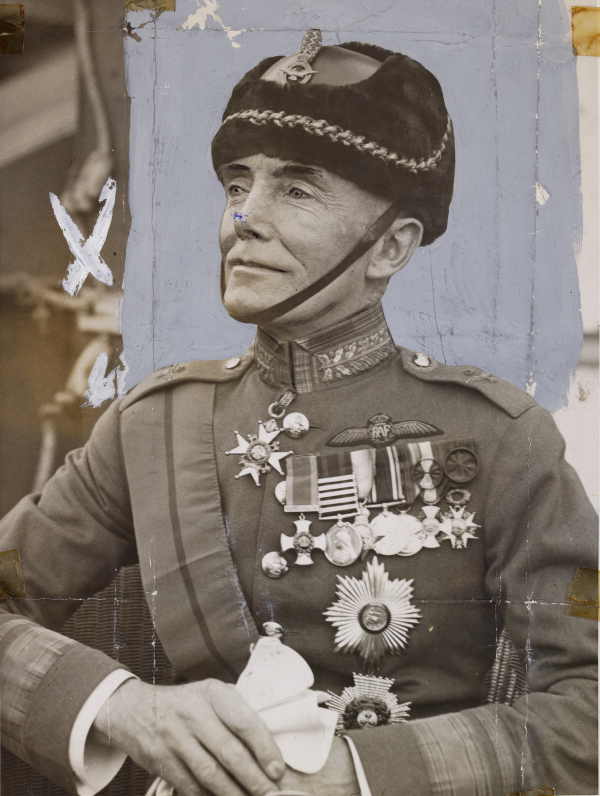- Philip Game
Infobox Officeholder
honorific-prefix =Air Vice Marshal The Honourable
name = Sir Philip Game
honorific-suffix = GCB GCVO GBE KCMG DSO

imagesize =
small
caption =
order = 14th
office = Commissioner of Police of the Metropolis
term_start =1 November 1935
term_end =1 June 1945
predecessor = The Lord Trenchard
successor = Sir Harold Scott
order2 = 27th
office2 = Governor of New South Wales
term_start2 =29 May 1930
term_end2 =15 January 1935
lieutenant2 =
monarch2 = King George V
predecessor2 = Sir Dudley de Chair
successor2 = Sir Alexander Hore-Ruthven
birth_date = birth date|1876|3|20|df=y
birth_place =Streatham ,Surrey ,England ,United Kingdom
death_date = death date and age|1961|2|4|1876|3|20|df=y
death_place =Sevenoaks ,Kent ,England ,United Kingdom
restingplace =
restingplacecoordinates =
birthname = Philip Woolcott Game
nationality = British
spouse =
nickname =
allegiance =United Kingdom
branch =Royal Air Force
serviceyears = 1893–1929
rank =Air Vice Marshal
battles =Second Boer War World War I
awards =Knight Grand Cross of the Order of the Bath Knight Grand Cross of the Royal Victorian Order Knight Grand Cross of the Order of the British Empire Knight Commander of the Order of St Michael and St George Distinguished Service Order Mention in Despatches Air Vice Marshal Sir Philip Woolcott Game GCB, GCVO, GBE, KCMG, DSO (30 March 1876 –4 February 1961 ) was a BritishRoyal Air Force commander, who later served as Governor ofNew South Wales ,Australia , and Commissioner of the Metropolitan Police inLondon .Early and family life
Philip Game was born in
Streatham ,Surrey inEngland on30 March 1876 to George Beale Game, a merchant from Broadway inWorcestershire and his wife Clara, née Vincent. Before entering the Army, he was educated at Charterhouse. In 1908 he married Gwendoline Margaret Hughes-Gibb. They had three children, Philip (known as Bill), David and Rosemary.Military service
Following officer training at the
Royal Military Academy Woolwich , Game was commissioned into theBritish Army on2 November 1895 . During the early part of theFirst World War , he served as a staff officer and in early 1916 Game transferred to theRoyal Flying Corps as a result of Hugh Trenchard's request for an experienced staff officer to serve in his HQ. Game transferred to theRoyal Air Force on its creation in 1918. In 1922 he was promoted to the rank ofAir Vice-Marshal and appointedAir Officer Commanding RAF India. The next year he took up the post ofAir Member for Personnel , which he was to hold for over five years until his retirement from the RAF in 1929.Governor of New South Wales
He was appointed Governor of New South Wales in 1930, serving until 1935. Along with the Premier Jack Lang and others, Game was a participant at the official opening of the
Sydney Harbour Bridge on19 March ,1932 , where he made a speech.After the
United Australia Party federal government ofJoseph Lyons came to power in January 1932, it passed the "Financial Agreement Enforcement Act", forcing the NSW government to adhere to its debt commitments and to cut government spending (see also [http://www.austlii.edu.au/au/legis/cth/consol_act/fala1932398] ). In response, Lang withdrew all the state's funds from government bank accounts so the federal government could not gain access to the money. Sir Philip advised Lang that in his view this action was illegal, and that if Lang did not reverse it he would dismiss the government. Lang stood firm, and issued a leaflet in defiance of Game. On13 May 1932 the Governor dismissed Lang's government and appointed the UAP leader, Bertram Stevens, as Premier. Stevens immediately called anelection , at which Lang's party was heavily defeated.This was the only case of an Australian government with the confidence of the lower house of parliament being dismissed by a Vice-Regal representative, until
Governor-General Sir John Kerr dismissedGough Whitlam 's government on11 November ,1975 .Commissioner of Police of the Metropolis
After his term ended, Game returned to Britain. He served as
Commissioner of Police of the Metropolis from 1935 until 1945. Not long after his appointment, Game was responsible for the policing of the funeral of King George V. In 1943, in an attempt to prevent burglaries, Game urged householders not to keep furs, adapting a verse from Chapter 9 ofEcclesiastes saying, Rquote|center|they are no doubt warmer, and look nicer than a tweed coat, but a live dog is better than a dead lion. Towards the end of his time as Commissioner of the Metropolitan Police, Game worked to establish a boys' club. The Sir Philip Game Boys' Club, situated in the London borough of Croydon, was opened in 1946.Sir Philip Game died on
4 February 1961 .-
-
-succession box
title=Air Member for Personnel
before=Sir Oliver Swann
after=Sir John Salmond
years=1923 – 1929
-External links
* [http://www.spgcentre.co.uk/site/index.php?option=content&task=view&id=10&Itemid=28 Sir Philip Game Centre - Biography]
* [http://www.rafweb.org/Biographies/Game.htm Air of Authority - A History of RAF Organisation - AVM Game]
* [http://www.adb.online.anu.edu.au/biogs/A080629b.htm Australian Dictionary of Biography - Sir Philip Game]
Wikimedia Foundation. 2010.
